Table of Contents
Get started with MyPerfectResume today!
- Build a resume on any device
- Pick an ATS-friendly template
- Tailor with AI copy suggestions
Why this resume works
- Quantifies accomplishments: By showcasing accomplishments like boosting sales by 15% and saving $100K annually, the applicant skillfully illustrates their impact through quantifiable metrics.
- Uses action-oriented language: Using action verbs such as “analyzed,” “streamlined,” and “improved,” the applicant’s resume effectively conveys initiative and results-driven focus.
- Showcases career progression: The applicant’s career progression from data analyst to statistics analyst demonstrates increasing responsibility and expertise over time, revealing a clear trajectory of growth and advancement.
More Statistics Resume Examples
Take a look at these statistics resume examples to learn how to highlight your analytical skills, data skill, and problem-solving abilities. Use these samples to help you create a resume that appeals to various data-driven roles.
Entry-level statistics resume
Why this resume works
- Effective use of keywords: Weaving role-relevant keywords throughout the resume like “data models,” “predictive modeling,” and “Tableau” help it pass ATS scanning effectively.
- Shows digital literacy: Mastery of platforms such as SQL and Tableau, paired with machine learning expertise, reflects a high level of digital literacy essential for the role.
- Centers on academic background: Graduating from a master’s in data science emphasizes academic excellence early in their career, reinforcing the applicant’s robust foundation for professional growth.
Mid-level statistics resume
Why this resume works
- Points to measurable outcomes: Highlighting achievements like boosting sales by 25% and improving portfolio returns by 12% annually, the applicant clearly focuses on delivering measurable outcomes.
- Demonstrates language abilities: Language skills in Spanish, Mandarin, and French supports their ability to engage in cross-cultural communication.
- Displays technical expertise: Skill in tools like SQL and Python, along with certifications from the Data Science Council and AI Institute, showcases their strong technical expertise.
Experienced statistics resume
Why this resume works
- Showcases impressive accomplishments: Impressive accomplishments like leading a 20% growth in data insights reveal senior-level performance with a significant business impact.
- Sections are well-organized: The resume’s use of bullet points and headers creates an easy-to-scan format, making the applicant’s career progression and achievements stand out effortlessly.
- Lists relevant certifications: Listing certifications such as Certified Analytics Professional supports the applicant’s expertise and commitment to learning.
Explore Even More Statistics Resumes
Statistics Resume Template (Text Version)
Yuki Martinez
Austin, TX 78705
(555)555-5555
Yuki.Martinez@example.com
Skills
- Data Analysis
- Statistical Modeling
- Predictive Analytics
- Data Visualization
- R Programming
- Python Programming
- Machine Learning
- SQL
Languages
- Spanish – Beginner (A1)
- French – Intermediate (B1)
- Chinese – Beginner (A1)
Professional Summary
Experienced statistics professional with strong expertise in data analysis and predictive modeling. Proven track record of leveraging data to drive results and enhance operational efficiency.
Work History
Statistics Analyst
Data Insights Group – Austin, TX
May 2023 – July 2025
- Analyzed data trends to boost sales by 15%
- Streamlined data processes, saving $100K annually
- Enhanced reporting efficiency by 35%
Quantitative Researcher
Pacific Analytics – Austin, TX
May 2020 – April 2023
- Developed models improving forecasting accuracy by 20%
- Reduced project costs by 18% through efficient design
- Optimized data collection, increasing speed by 25%
Data Analyst
TechSolve Solutions – Pinehill, TX
May 2019 – April 2020
- Improved database efficiency, cutting response time by 40%
- Led team to increase client satisfaction scores by 25%
- Automated reporting, reducing errors by 30%
Certifications
- Certified Data Scientist – Data Science Council
- Professional Statistician – American Statistical Association
Education
Master of Science Statistics
Stanford University Stanford, California
June 2019
Bachelor of Science Mathematics
University of California, Berkeley Berkeley, California
June 2017
Browse Resume Examples by Industry
- Aviation
- Banking
- Billing And Collections
- Biology
- Boating
- Business Operations
- Casino
- Chemistry
- Child Care
- Civil Engineering
- Compliance
- Computer Hardware
- Computer Software
- Construction
- Copywriting
- Cosmetology
- Costco
- Culinary
- Customer Service
- Dance
- Data Systems Administration
- Deloitte
- Dentistry
- Driving
- Education
- Electrical
- Electrical Engineering
- Energy
- Engineering
- Entertainment
- Entrepreneur
- Entry Level
- Environmental
- Environmental Science
- Event Planning
- Executive
- Fashion
- Film
- Finance
- Fitness And Nutrition
- Food Service
- Freelancing
- General Laborer
- Goldman Sachs
- Government
- Graphic Design
- Healthcare Support
- Hospitality
- Human Resources
- HVAC
- Industrial Engineering
- Information Technology
- Insurance
- Interior Design
- Inventory Management
- Janitorial
- Landscaping
- Language Services
- Law
- Law Enforcement
- Library
- Logistics
- Maintenance
- Marketing
- McKinsey
- Mechanical Engineering
- Mechanics
- Media And Communication
- Medical
- Mental Health
- Meta
- Metal Work
- Military
- Mining
- Museum
- Music
- Netflix
- Non Profit
- Nursing
- Pharmaceutical
- Photography
- Physical Therapy
- Plumbing
- Politics
- Production
- Program Manager
- Project Manager
- Psychology
- Purchasing
- Quality Control
- Real Estate
- Religion
- Retail
- Safety And Security
- Sales
- Sciences
- Shipping
- Social Services
- Special Education
- Sports
- Student
- Teaching
- Team Lead
- Tesla
- Training And Development
- Transportation
- Travel
- Veterinary
- Walgreens
- Walmart
- Web Development
Advice for Writing Your Statistics Resume
Learn how to write a resume for a statistics position and discover how to highlight your analytical skills and passion for data-driven insights.
Whether you’re a seasoned statistician or just starting, these tips will help you stand out in the world of numbers.
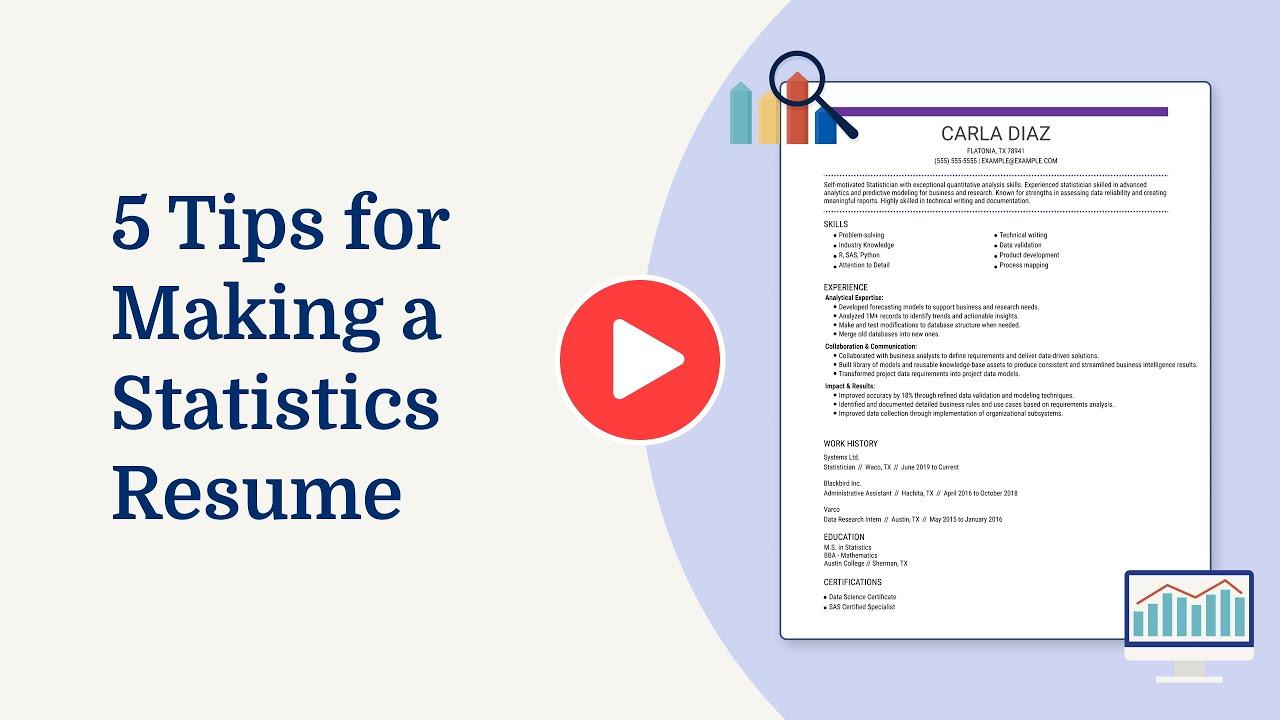
Highlight relevant technical skills
For a job in statistics, having strong technical skills is key. Create a technical skills section on your resume to list these abilities clearly. If you prefer, you can also mention them within the work experience section to show how you used them in past roles. This makes it easy for employers to see your expertise at a glance.
Commonly sought-after technical skills in statistics include:
- Mastery of programming languages like R, Python, and SQL
- Analyzing and manipulating data
- Knowledge of software such as SAS, SPSS, or Tableau
- Statistical modeling and data visualization
- Familiarity with machine learning algorithms
- Statistical techniques like regression analysis or hypothesis testing
These skills help you handle large datasets, draw meaningful insights, and make data-driven decisions. Highlighting them effectively shows that you’re equipped to tackle complex statistical problems and contribute significantly to any project or team.
Example of a technical skills section
- Statistical analysis (R, SAS, SPSS)
- Data visualization (Tableau, Power BI)
- Machine learning algorithms
- Experimental design
- Regression analysis
- Hypothesis testing
- Time series analysis
- Predictive modeling
- Multivariate analysis
- Bayesian statistics
Employers look for teamwork, adaptability, and communication skills as much as technical ones, so make sure to include these in your resume to get noticed.
Quantify your accomplishments
Quantifying your accomplishments on a resume makes it more compelling by showing clear, measurable results. Instead of just listing duties, you should highlight achievements with specific numbers. For example, if you’re applying for a statistics role, mention how you increased efficiency by 20% or reduced costs by 15%. This shows hiring managers exactly what impact you’ve had in your previous positions.
In the work experience section, include your job title, employer name, location, and employment dates. Then turn your duties into achievements with measurable outcomes. Use action verbs like “improved,” “reduced,” or “increased” to describe what you did and the results. This creates a results-driven resume that helps hiring managers quickly see your skills and the value you bring.
By quantifying accomplishments, you make it easier for hiring managers to assess your impact and skills at a glance. They can see not just what you did but how well you did it. This approach is especially useful in roles like statistics where data and numbers are important to the job.
5 statistics work history bullet point examples
- Analyzed complex datasets using R and Python, increasing data processing speed by 40%.
- Developed statistical models to predict customer behavior, resulting in a 25% increase in sales.
- Conducted A/B testing for marketing campaigns, improving conversion rates by 15%.
- Automated data collection processes, reducing manual input errors by 50%.
- Presented statistical findings to stakeholders, contributing to a 30% improvement in decision-making accuracy.
Get great ideas for your own resume by checking out different professional resume examples to see how others in your field highlight their skills and experiences.
Write a powerful professional summary
A professional summary is an intro at the top of your resume that gives hiring managers a quick glimpse into your experience and skills. It’s key to decide whether to use a summary or an objective based on what best showcases your qualifications.
A professional summary usually includes three to four sentences that highlight your experience, main skills, and achievements. It’s ideal for experienced applicants who want to show their professional identity and value immediately. The aim is to offer a snapshot of what you bring to the table.
In contrast, resume objectives are statements about your career goals and work well for entry-level applicants, career changers, or those with employment gaps. Unlike summaries that focus on past accomplishments, objectives stress what you hope to contribute in a new role.
Now let’s look at examples of both summaries and objectives tailored for different levels of experience.
Statistics resume summary examples
Entry-level
Recent statistics graduate with a Bachelor of Science in Statistics and experience in data analysis projects. Familiar with statistical software such as R and Python, and equipped with strong skills in data visualization and hypothesis testing. Eager to apply analytical skills to support decision-making processes in a dynamic work environment.
Mid-career
Experienced statistician with over six years in the healthcare industry, specializing in biostatistics and data modeling. Proven track record of conducting complex statistical analyses and generating actionable insights for clinical trials. Proficient in SAS and SQL, with strong capabilities in predictive analytics and statistical consulting.
Experienced
Senior statistician with 15+ years of expertise in financial services, leading teams to develop advanced models for risk assessment and market forecasting. Holds a master’s degree in applied statistics, certified in Six Sigma Black Belt. Known for strategic leadership, implementing robust statistical methodologies that drive business growth.
Statistics resume objective examples
Recent graduate
Detail-oriented recent statistics graduate with a Bachelor of Science in Statistics seeking an entry-level statistician role to apply analytical skills and knowledge of statistical methodologies. Eager to contribute to data-driven projects and support decision-making processes through accurate data analysis.
Career changer
Passionate professional transitioning into the field of statistics, bringing strong analytical and problem-solving skills developed through extensive experience in business analysis. Looking to leverage quantitative abilities and newly acquired statistical knowledge to support research initiatives and data interpretation in a collaborative environment.
Entry-level applicant
Ambitious individual with foundational training in statistical analysis and data management, aiming for an entry-level position as a statistician. Committed to using technical skills in R, Python, and SQL to assist in the collection, analysis, and presentation of data insights that drive strategic decisions.
Pick a resume template that uses clear sections and simple fonts. Steer clear of flashy designs or vibrant colors to help employers focus on your skills and experience.
Showcase your credentials
Listing your credentials in statistics is key to showing your skills and knowledge. Certifications, licenses, and special training are important in technical fields because they show you know what you’re doing.
They also help you stand out from others who might not have the same credentials. Make a section called “Certifications” on your resume so employers can easily see them. This section can go along with your education to give a full picture of your qualifications.
Relevant certifications for a statistical resume include:
- Certified Statistical Analyst (CSA)
- SAS Certified Specialist: Base Programming Using SAS 9.4
- Data Science Professional Certificate
- Microsoft Certified: Azure Data Scientist Associate
- Google Data Analytics Professional Certificate
Having certifications shows that you are ready for the challenges in the field of statistics. These credentials prove that you have up-to-date skills and can handle complex tasks. By putting these on your resume, you make it clear that you’re committed to being at the top of your field.
Example of a certifications section
Certified Statistical Analyst (CSA)
Issued by: American Statistical Association (ASA)
Issued 2023
SAS Certified Specialist: Base Programming Using SAS 9.4
Issued by: SAS Institute
Expires 2027
Choose a chronological resume format if you have steady work history in statistics, but opt for a functional or combination format if you’re changing careers, have employment gaps, or want to emphasize skills over job titles.
FAQ
Do I need to include a cover letter with my statistics resume?
Yes, including a cover letter with your statistics resume can be beneficial in making your application stand out.
A cover letter gives you the chance to explain why you’re interested in the role and how your statistical skills align with the company’s needs.
For example, if the organization focuses on predictive analytics or data-driven decision-making, you can showcase specific projects or experiences that relate to these areas.
You might find it helpful to use a tool like our Cover Letter Generator to create a tailored cover letter that complements your resume and highlights your unique strengths.
Also, looking at cover letter examples designed for statistics roles can spark ideas and help ensure yours effectively conveys your expertise.
How long should a statistics resume be?
For a statistician, aim for a one-page resume if you’re early in your career or have less than 10 years of experience. This length allows you to spotlight key skills such as data analysis, statistical software skill, and significant projects without overwhelming the reader.
If you have extensive experience or multiple relevant publications and specialized certifications, extending to a two-page resume is acceptable. Just ensure every detail is relevant and improves your qualifications for the role. Focus on recent and relevant experiences to keep it engaging.
Explore our guide on how long a resume should be for more examples and tips tailored to different career stages.
How do you write a statistics resume with no experience?
If you’re creating a statistics resume with no experience, emphasize your education, technical skills, and any projects or coursework that showcase your ability to analyze data and tackle problems effectively.
- Emphasize your education: Start with your degree in statistics, mathematics, or a related field. Include the name of your school, graduation date (or expected date), GPA if it’s strong, and relevant coursework like statistical methods, data analysis, or programming.
- Showcase technical skills: Highlight skill in tools like R, Python, SQL, SAS, Excel, or other statistical software. If you’ve completed online certifications in these areas, include them.
- Leverage academic projects: Use class projects or research as examples of applying statistical techniques. Detail the problem you tackled, the methods used (e.g., regression analysis or predictive modeling), and outcomes achieved.
- Include internships or volunteer work: Even if unpaid roles weren’t directly about statistics, mention anything involving data collection or analysis. This shows transferable skills.
Tailor each section to the job description by aligning your skills and experiences with what the employer is looking for.
Rate this article
Statistics
Share this page
Additional Resources
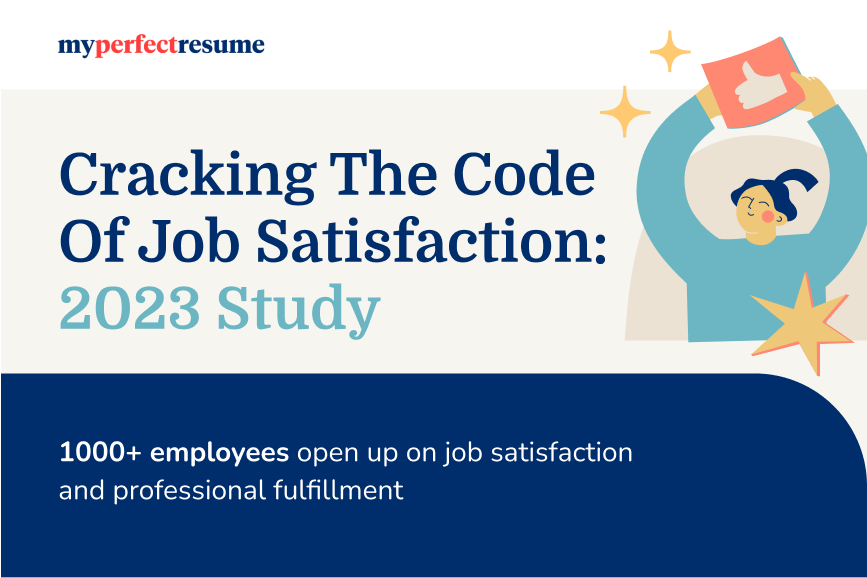
Job Satisfaction Trends: Comprehensive Employee Research Statistics
Does your job give you an endorphin boost? Or rather anxiety, stress, and hundreds of reasons to complain? No matter whether you save lives or create memes, work from 9 to

The Illusion of Wage Growth: Where Paychecks Stretch the Farthest
U.S. wages have climbed at one of the fastest rates in modern history. Between 2020 and 2024, the average American worker’s pay rose from about $64,000 to $75,600, an 18%
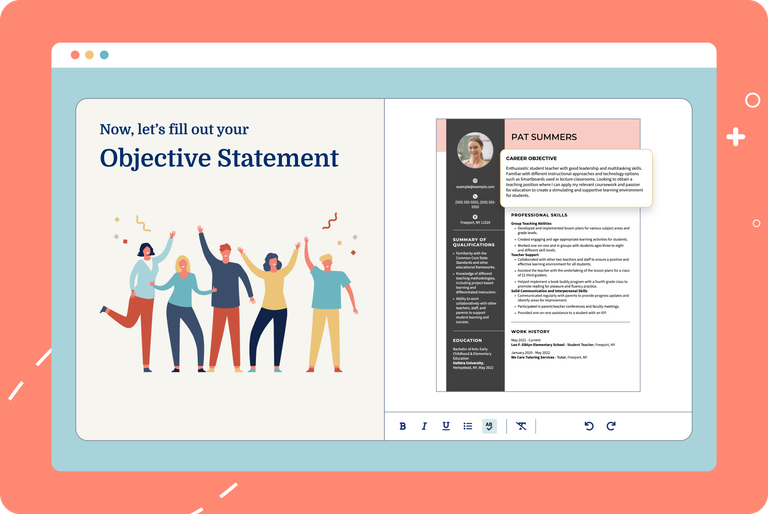
100+ Resume Objective Statement Examples & Best Practices
In just a sentence or two, a resume objective statement tells hiring managers the role or career path you’re aiming for and the unique skills and value you bring to

150+ Skills for a Resume: Examples for Any Job
Crafting a standout resume starts with highlighting the skills and qualifications that demonstrate your fit for the role. But in a crowded job market, knowing which abilities will actually catch
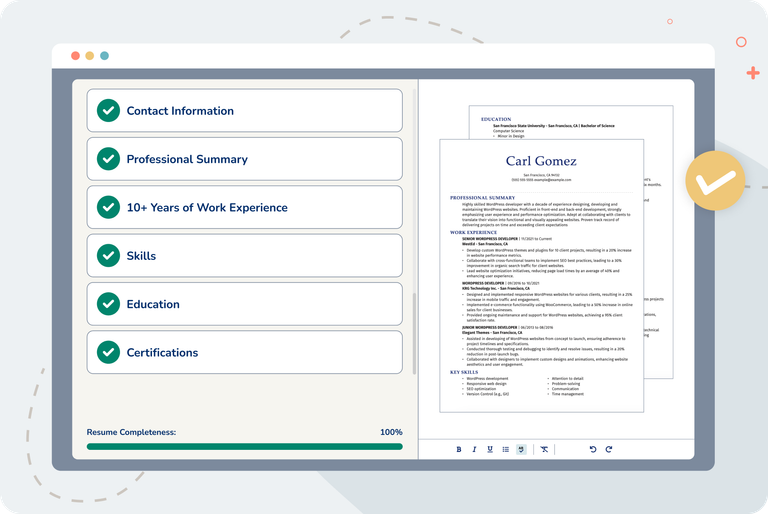
When to Use a Two Page Resume (With Examples & Formatting Tips)
If you’ve spent years building your skills, growing in your career, and racking up accomplishments, a one-page resume might not cut it. A two-page resume gives you space to present a
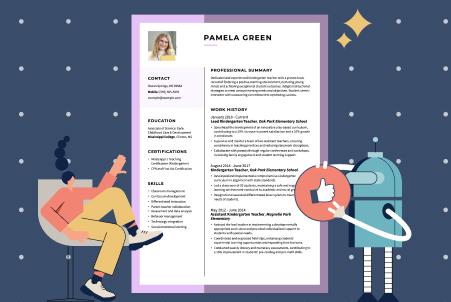
How to Make an ATS Friendly Resume (Templates & Guide)
In today’s fast-paced hiring climate, many employers use applicant tracking systems (ATS) to organize, store, and screen candidate information. Optimizing your resume for ATS is essential for ensuring your application passes
